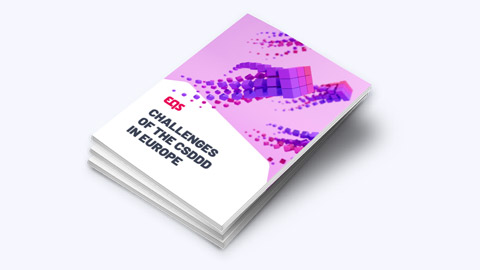How Companies and Investors Find Each Other Post MiFID II
The EU Financial Market Guideline also offers the opportunity to significantly improve the quality of your investor relations.

Comprehensive service offerings from banks and brokers for issuers were common place 18 months ago when MiFID II (Markets in Financial Instruments Directive) came into force. The EU Financial Market Guideline, which aims to ensure greater transparency and better protect investors, has changed this.
Every service provided by brokers and banks now carries a price tag. The comprehensive package including stock research, access to capital market conferences and the organization and execution of roadshows is therefore a thing of the past.
Roadshows and Conferences: No Guarantee of High-Quality Contacts
Issuers, funds, asset managers and other investment companies all need to find new ways of accessing capital. After all, institutional investors, like issuers, now have to pay for these services – and often concentrate on companies in the major indices. This is to the detriment of small and medium-sized companies.
Brokers and banks have also felt the consequences of the changing market conditions. Due to the lower demand for stock research – from both the buy and sell sides – some research houses have already restructured their analyst departments and in some cases reduced them in size. In addition, roadshows have been more challenging to put together and some have even had to be cancelled due to a lack of interest from institutional investors.
The trend among brokers is therefore to organize larger conferences, some of which are sector-focused, instead of individual roadshows, in order to work more efficiently. However, even at these large events there is no guarantee for issuers that they will actually find the desired investors there.
Investor Targeting Pays Off
This is a challenge for investor relations experts. They therefore need to put measures in place to ensure that their company is correctly understood and visible, a prerequisite for fair company valuation and ensuring liquidity.
In practice this means that issuers must decide whether to continue using and paying for the services of brokers or at least the extent to which they rely on their brokers. To what extent do they need to take the search for investors into their own hands and engage in active investor targeting.
More and more companies are now opting to take this inhouse following the introduction of MiFID II and are seeking direct contact with investors. In this way they reduce their dependence on brokers, whose client lists have recently become shorter – and take the opportunity to significantly improve the quality of their investor contacts.
Maintaining Investor Data Is Critical
With active investor targeting, the role of investor relations is evolving to some extent, because the IRO is more focused on contacting institutional investors directly. But before they can proactively reach out to existing and potential investors, they need to identify them.
As a rule, IR professionals should know the shareholder structure of their company and keep an eye on changes. Understanding which investors are involved in their peer group – whether locally or abroad – also enables meaningful market analysis and helps to identify funds or asset managers that might be interested in your shares.
When selecting an IR CRM and investor database, the quality of the investor data is of primary importance, particularly global coverage and how up-to-date the information is. It should of course be clearly presented. But that’s not all: the IRO needs to continuously maintain and add to this data (e.g. meeting minutes, meeting notes), so that they can reach out to investors in a targeted manner.
Reaching out to Investors: Independent, Efficient and Targeted
Active investor targeting is an efficient way for IR managers to be more independent of brokers and banks when communicating with investors. This requires a lot of work. However, processes relating to analysis, evaluation of shareholder profiles and communication can be automated, which improves the quality of results and protects limited IR resources as well as valuable board time. Time is therefore dedicated to investors who really want, can and are allowed to invest in your company.



